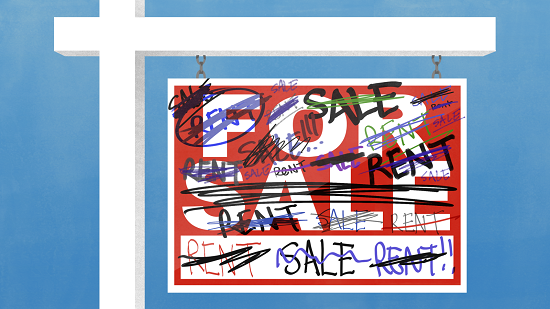
To start investing in real estate, you must decide what kind of investor you are. For those planning to be a flipper, your goal is to generate profit immediately. You buy a property, you renovate it, and then you sell it. For those planning to build their rental portfolio, investing in real estate is a long-term savings vehicle. You might not see a positive cash flow for years to come, but you will enjoy consistent income once the mortgages are paid off (not to mention ever-appreciating assets). Which strategy is right for you depends on many factors. Among them are your financial goals, your current financial situation, and how much time you can afford to spend on the project. Let’s delve into each of these factors to help you decide which strategy is right for you.
How much time you can afford to invest.
Let’s start with time. Flipping homes can be a time-consuming business. Even if you are not doing any physical work yourself, you’ll be investing hours each week managing your project. Every major decision and many details will rest on your shoulders. So ask yourself whether you can realistically invest enough time to run the project effectively.
For example, we get some phone calls from borrowers who mention they can only talk after 6 pm. My natural question is, “If you can only talk after 6 pm, how do you plan to respond to your crew questions or emergencies?” If your primary work schedule is so rigid, there might be better times to become a rehabber than now.
Aside from having time flexibility, it’s also about the sheer amount of time you can invest in the project. One of our best clients gets on site every day around 6 am. He inspects the progress made the previous day and sets the agenda for the next day. His dedication to the project results in his crew moving fast and producing high-quality work. Are frequent site visits something you can commit to? If your current home and professional life allow such flexibility, you’re the right candidate for the fix-and-flip business.
If the answer is no, you might consider being a landlord. If you purchase a turn-key property and select the right tenant, the time to manage them might fit even into the most demanding schedule.
Your financial goals.
Next, let’s tackle your financial goals. Of course, all of us would like to make more money – both in the short and long terms, but let’s dig deeper. Are you considering real estate investing because you need to supplement your current income? Would you like to lay the foundation for a possible career alternative? Are you looking to boost your current levels of savings? Or is your goal to effectively diversify the savings portfolio you already have? In other words, is your preference to earn additional income now or to accelerate your long-term savings?
The answer depends on your current financial situation. Your savings, your current income and your job security all play a role in whether you are better suited to flipping homes or holding them for the long term. Being a landlord builds your long-term wealth, but it takes years to do so. In the DC area, you are lucky if the monthly rent from your tenants covers your mortgage payment, your expenses of maintaining the property, and your vacancy rate. The appreciation in the market value of your property will eventually increase your net worth. You would feel great about it, but accessing these funds will be difficult. To meet life’s emergencies and pursue other business opportunities, ensure you have plenty of liquid assets or – better yet – cash in the bank.
In contrast, if you are looking to supplement your income, fixing and flipping real estate fits right in. It might offer stability and diversification to your primary career. It might be the begginnig of your transition from working for someone to being self-employed.
The Property Itself.
There is also another variable that must influence your decision of whether to flip a property or to keep it as a rental. It’s the property itself. While you must consider all the factors we’ve discussed above, to be an entrepreneur requires flexibility in thinking. It means “to keep your eyes peeled” for the right opportunity. And opportunities might come in forms and shapes other than expected. To learn more on how the subject property itself can affect the decision on whether to flip or rent it, read our next blog.
 New Funding Resources
New Funding Resources 





Leave a Reply